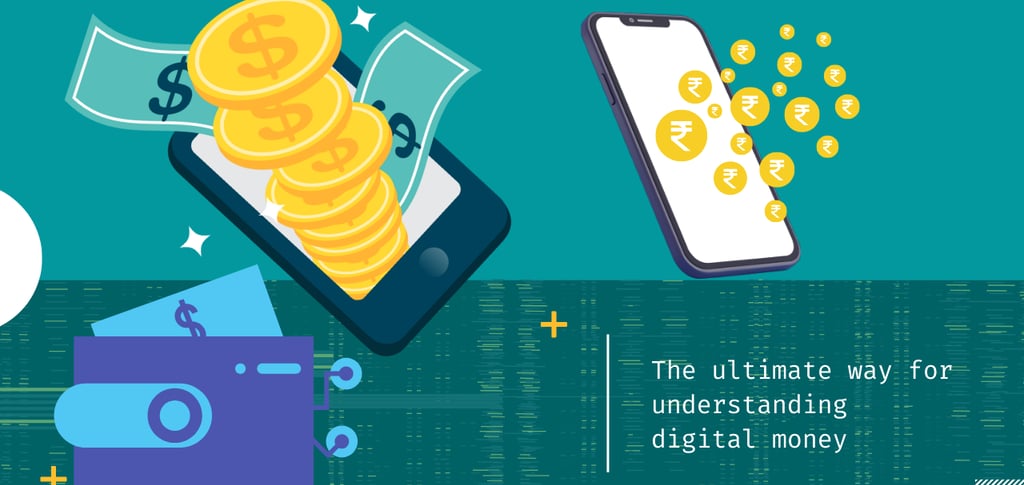

Digital currency insights
Future Opportunities and advantages of Digital Money
Digital money presents numerous opportunities and advantages for individuals, businesses, and economies. Here's an overview of some key aspects: A. Transaction Speed and Efficiency: Digital transactions provide a substantial benefit in terms of speed and efficiency, as they may be completed in real time or within a few hours, as opposed to the several days it can take for paper checks to clear. This increased speed shortens settlement timeframes and boosts cash flow for both consumers and businesses, making digital payments especially appealing for time-sensitive transactions and fast-paced commercial situations. The elimination of time lags in older systems such as SWIFT emphasizes the efficiency improvements provided by digital alternatives. As real-time payments become the norm, firms may increase operational efficiency and financial planning. B. Enhanced Security: Security is a top priority in financial transactions, and digital payments often offer more advanced security features than paper checks. They use current encryption and multi-factor authentication technology to prevent unauthorized access and fraud. Tokenization, a vital security tool, replaces sensitive payment information with unique, irreversible identifiers, thereby significantly reducing the risk of data misuse. The adoption of biometric identification technologies like fingerprint and facial recognition adds an extra layer of security. Furthermore, the use of artificial intelligence (AI) and machine learning algorithms enhances fraud detection capabilities by analyzing huge amounts of data in real time to spot suspicious patterns and potentially fraudulent actions with high accuracy. C. Accessibility and Financial Inclusion: Digital money has the potential to significantly increase financial inclusion by providing access to financial services to the unbanked and underbanked, particularly in developing nations where traditional banking infrastructure may be limited. Mobile money platforms have already proven revolutionary in Sub-Saharan Africa, allowing mobile phone users to participate in the wider financial system. D. Cost Efficiency: The transition from paper-based to digital payments leads in significant cost savings. Digital payments eliminate the costs of paper, printing, postage, and manual check processing. Furthermore, transaction fees for digital payments are usually lower than for traditional payment methods, especially for cross-border transactions, making them an affordable choice for both consumers and businesses. E. Traceability and Reduced Illegal Activity: One significant advantage of digital transactions is that they create a digital record, making them traceable. Traceability can be an effective strategy in combating illicit activities such as money laundering, tax evasion, and terrorism financing since it encourages increased transparency and accountability in financial transactions. F. Convenience and Global Reach Digital payments are exceptionally convenient, with transactions available 24 hours a day, seven days a week, and from almost anyplace with an internet connection. This round-the-clock availability fulfills the demands of today's fast-paced, networked environment. Furthermore, digital payment systems enable seamless cross-border transactions and international trade, breaking down geographical barriers and helping businesses to grow globally.
DIGITAL MONEY
Digital money for future
4/5/20251 min read
